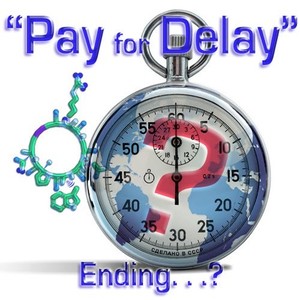Brand-name drug and generics manufacturers are joining forces to fight against the US Federal Trade Commission (FTC) in the case of reverse patent settlements or ‘pay-for-delay’, as the FTC terms these deals.
Pay-for-delay settlements involve agreements in which brand-name drug and generics manufacturers settle patent disputes by exchanging a payment for a commitment to refrain from marketing a generic until a certain date.
The FTC has long branded these deals as anticompetitive and has been trying to ban them for more than 10 years. However, generics manufacturers claim that a ban on patent settlements would actually delay patient access to lower cost generics, costing consumers, payers and the government billions of dollars.
The case will be heard at the US Supreme Court on 25 March 2013, and FTC is asking the court to rule that the so-called pay-for-delay settlements are inherently anticompetitive. Pharma giants Bayer and Merck have joined forces with the Generic Pharmaceutical Association (GPhA) in opposing the FTC’s interpretation.
The case under the court’s consideration involves Androgel, a testosterone therapy from Solvay Pharmaceuticals (Solvay), which is now part of AbbVie. The FTC sued Solvay and generics maker Watson Pharmaceuticals (Watson) after the two companies settled a patent dispute over the drug. Watson agreed to pay Solvay a cash settlement in return for the right to market Androgel on a particular date. This is where the FTC says the problem lies. The FTC says it has ‘no quarrel with settlements that merely set the date for generic entry’, but when a payment is involved it is different.
The FTC claims that this situation is a ‘win–win’ for pharmaceutical companies and a ‘lose–lose’ for patients, quoting an FTC study from 2010, which found that the deals cost consumers US$3.5 billion a year.
The GPhA, however, disagrees with the FTC’s standpoint, arguing that in fact such deals increase access to affordable medicines by making generics available sooner than would otherwise be possible, thus saving patients hundreds of billions of dollars. The GPhA backs up its claims with a 2011 analysis by the Royal Bank of Canada (RBC), which found that the ability to settle patent challenges dramatically increases opportunities for consumer savings. The RBC analysis demonstrated that in cases where companies litigated to a conclusion, generics came to market prior to patent expiration in only 48% of cases. In those cases where settlements resulted, generics came to market prior to patent expiration in 76% of cases [1].
The FTC may be fighting a losing battle, however, as three of the four federal appeals courts to rule on the issue have said the settlements are generally permissible.
Drug companies say the government is failing to grasp the complexities of settlement talks, pointing out that it is patents and not settlements that stand in the way of generic competition. Solvay had a patent that, if backed by the courts, would have protected the drug an additional five years - until 2020.
Editor’s comment
The question is do pay-for-delay deals delay the entry of generics or not? Would legislation to prevent these deals bring generics to market sooner? One thing most people can agree on though is that affordable medicines should be available as soon as possible. But what is the best way to make this happen?
Please feel free to share your thoughts via email or in the comments section below. What are your views on the continuing pay-to-delay debate? Should legislation be introduced banning these deals? Or do these deals result in generics being available sooner than would otherwise be possible?
Related articles
Problematic pharma patent settlements decrease in the EU
FAIR Generics Act could remove 180-day exclusivity
More debate over ‘pay-to-delay’ legislation in the US
Reference
1. GaBI Online - Generics and Biosimilars Initiative. Pay-for-delay on the increase in the US [www.gabionline.net]. Mol, Belgium: Pro Pharma Communications International; [cited 2013 Mar 29]. Available from: www.gabionline.net/Reports/Pay-for-delay-on-the-increase-in-the-US
Permission granted to reproduce for personal and educational use only. All other reproduction, copy or reprinting of all or part of any ‘Content’ found on this website is strictly prohibited without the prior consent of the publisher. Contact the publisher to obtain permission before redistributing.








 0
0











Post your comment